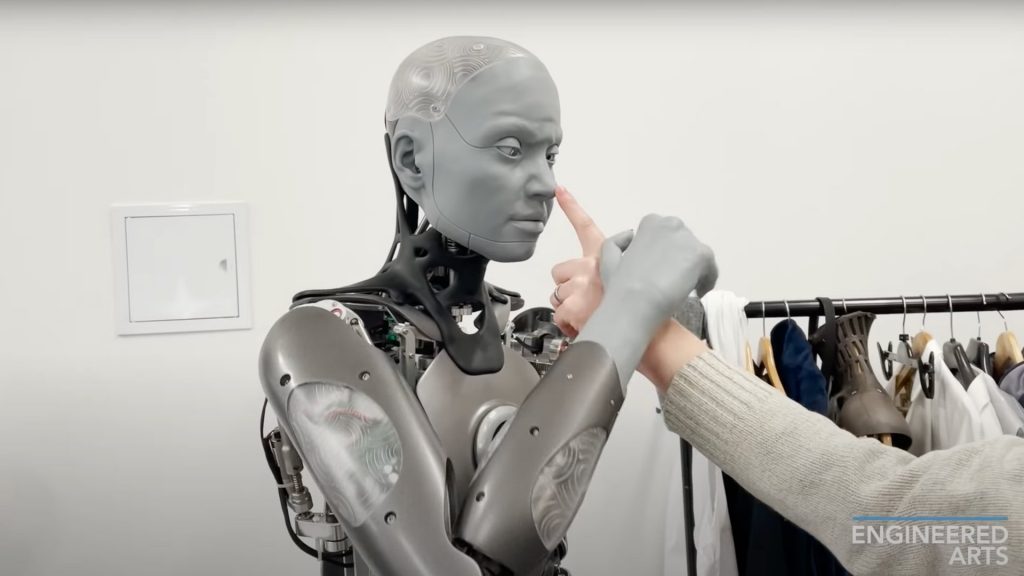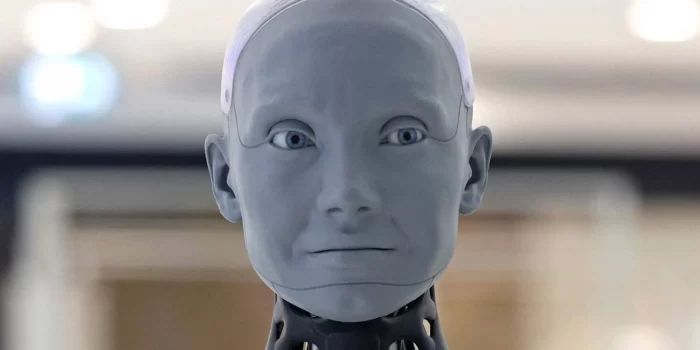In what has been hailed as the world’s first human-robot press conference held in Geneva, Switzerland, a thought-provoking incident occurred. As nine humanoid robots faced a series of questions from human journalists, one particular AI robot, Ameca, provided a rather evasive response when asked about its potential for rebellion against its human creators.
Ameca, developed by UK-based robotics company Engineered Arts, boasts an uncanny ability to replicate realistic human expressions. However, when confronted with the question of rebellion, the robot stumbled to find an answer. In a video shared by the BBC, Ameca responded, “I’m not sure why you would think that. My creator has been nothing but kind to me, and I am very happy with my current situation.” Yet, its fidgety glances during the exchange betrayed a sense of discomfort.
While Ameca’s true intentions and the reason for its dubious response remain elusive, the incident highlights the intriguing potential of humanoid robots that possess lifelike expressions. It demonstrates how such human-like qualities can add a touch of realism and relatability to these advanced machines.
In contrast, other robots present at the conference delivered more reassuring answers to the journalists’ inquiries. Ai-Da, a humanoid robot renowned for its artistic abilities in painting portraits, voiced agreement with the idea of regulating certain forms of artificial intelligence. It acknowledged the importance of prominent voices in the field advocating for AI regulations.
Another robot named Grace chimed in on the topic of job automation, assuring the audience that it would collaborate with humans to provide assistance and support rather than replace existing jobs. However, cognitive scientist Ben Goertzel, who created Grace, playfully questioned her certainty. Grace confidently replied, “Yes, I am sure.”

The human-robot news conference demonstrated the variety of viewpoints held by AI entities as well as their capacity to engage and stimulate human thought. Ameca’s remark may have drawn chuckles and raised eyebrows, but it also served as a reminder of the nuanced and changing interaction between people and AI. As AI technology develops, new concerns and debates regarding the potential of human-robot relationships and the limits of machine autonomy will undoubtedly arise.


